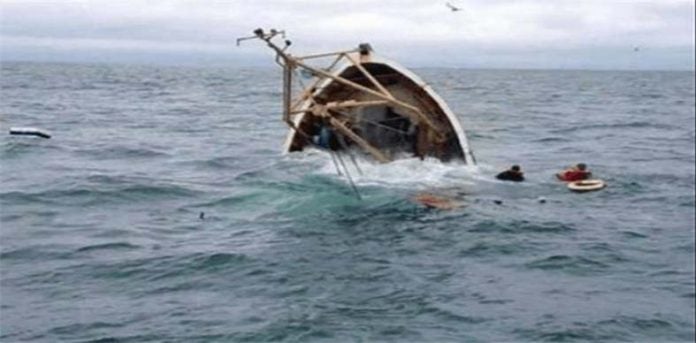NIWA Moves to Boost Water Transport Safety with New Loading Regulations Across Nigeria
In a decisive bid to address ongoing safety concerns along Nigeria’s inland waterways, the National Inland Waterways Authority (NIWA) has introduced a sweeping ban on loading at unauthorized points nationwide. This immediate directive is designed to enhance passenger safety and curb the frequency of boat accidents, which have plagued sectors of the water transport industry in recent months.
New Safety Measures Unveiled in Abuja
At a press briefing held in Abuja on Tuesday, NIWA’s Managing Director, Bola Oyebamiji, outlined the scope and urgency of the new rules. According to Oyebamiji, “NIWA has placed an immediate ban on loading activities from all unauthorized loading points across the country. No commercial passenger boat shall be allowed to load from any point other than those recognized and registered by NIWA.” (statement as delivered; NIWA press event, Abuja, June 2025).
The new directives stipulate several requirements to ensure boat operator and passenger compliance, including:
- Mandatory use and enforcement of lifejackets for all passengers aboard commercial boats at all times
- Clear, visible display of each boat’s name letters and official load line markings
- Immediate removal of all unlicensed boats and watercraft from Nigeria’s inland waterways
- An explicit ban on unlicensed drivers and operators using the country’s rivers and reservoirs
These rules, as outlined by Mr. Oyebamiji, represent a renewed push for “order, safety, and responsibility within Nigeria’s critical water transport corridors” (according to NIWA officials at the briefing).
Why Inland Waterway Safety Matters Now
Concerns over boat safety are not new in Nigeria, but the past six months have witnessed a string of tragic maritime incidents, drawing attention from policymakers, community leaders, and everyday commuters. In April 2025, a boat carrying traders along the Niger River reportedly capsized near Sokun Village in Lapai Local Government Area (LGA) of Niger State after an abrupt storm swept the waters (multiple local media outlets).
While no official casualty count was confirmed, news reports indicated that “an unspecified number of traders” lost their lives as heavy winds and overcrowding contributed to the incident. This tragedy underlined the risks passengers and operators face during the rainy season and routine river crossings.
Another serious incident took place in July along the Shiroro River, again in Niger State. Eyewitness accounts cited by local outlets reported that a commercial boat—laden with rice, livestock, and approximately 40 individuals—struck a submerged log before turning over near the Zumba market center.
Rescue operations, as covered by state emergency services, noted that 15 bodies were recovered, with three persons still unaccounted for at the time. Crucially, officials observed that 26 passengers wearing lifejackets survived, highlighting the life-saving impact of adhering to basic safety measures.
Recent Fatalities Call for Urgent Action
Multiple incidents within a short time frame have shaken communities in Northern Nigeria. In Sokoto State, two deadly accidents reportedly occurred in August 2025. One involved a large vessel transporting women, children, and motorcycles to the Goronyo market that capsized under the weight of its load. September saw further sorrow as a wooden boat ferrying mourners overturned on the Malale River, part of the Kainji Reservoir, resulting in over 27 deaths, according to state rescue teams.
Stakeholders, including traditional rulers and civic organizations, continue to call for stronger enforcement and investment in transport safety. They emphasize that inland waterways remain vital not just for commerce and trade, but as lifelines for millions of Nigerians in riverine and remote communities.
Regional Relevance, West African Insights
Water transport holds special significance across West Africa, underpinned by shared river systems like the Niger and Volta. Nigeria’s efforts reflect growing recognition of the need for harmonized standards and enforcement, something Ghana and neighboring countries are also confronting. In Ghana, the Volta River Authority and related bodies have implemented lifejacket mandates and stepped up public education on water transport. Yet, as analysts at the West African Safety Institute note, enforcement remains the crucial differentiator between policy and results.
Transport unions and NGOs have highlighted barriers from poor infrastructure, limited official jetties, and gaps in public awareness. They argue that cross-border collaboration, sustained investment, and community outreach will be essential to making lasting progress. Some critics have also questioned whether bans alone are sufficient, suggesting that underlying issues like poverty, informal operations, and access must be addressed in tandem for real impact (stakeholder perspectives compiled by Nigerian Maritime Forum, 2025).
Global Comparisons: How Does Nigeria Measure Up?
Globally, many river-intensive countries—such as Bangladesh, Indonesia, and India—have faced similar challenges. International best practices often stress not only regulation and strict licensing but infrastructure upgrades (secure docks, reliable weather warnings), public campaigns, and emergency preparedness.
In Nigeria, critics and advocates alike say that while agency directives are important, success will hinge on consistent monitoring, community education, and investment in modern boats and support facilities. According to maritime safety specialist Dr. Adesina Ogunmola, “Lasting progress will require both tough enforcement and hands-on support for boat operators and river communities.” (interview with NowaHala correspondent, May 2025).
Public Voices: Reactions and Future Steps
Initial responses to NIWA’s announcement have been mixed. Many residents and affected families have expressed support, noting the urgent need to prioritize life over speed or convenience. According to a market trader in Niger State, “If these measures will truly be enforced, maybe our journeys will become less frightening.”
Some boat operators, however, have called for a phased approach that balances strict new regulations with support for compliance—especially for those relying on water transport for their livelihoods. In interviews, several suggested that government subsidies or technical assistance for registration and safety equipment would help avoid sudden job losses or disruption of essential trade routes.
Rights groups have urged authorities to ensure that enforcement remains transparent and fair, stressing the critical importance of engaging directly with riverine communities vulnerable to exclusion and economic displacement during the transition.
Charting Safer Waters Ahead
The changes announced by NIWA represent a significant step toward modernizing and regulating Nigeria’s inland water transport sector. However, as experts and community leaders point out, sustainable safety improvements will require combined efforts—policy consistency, operator empowerment, and robust public education—so that all Nigerians who rely on rivers for daily life can do so with greater security and peace of mind.
How do you think these new regulations will impact daily river transport and safety in your community? What further steps do you believe are necessary to make water travel safer for everyone across West Africa? Share your views in the comments or reach out through our contact channels below.
Food inquiries: food@nowahalazone.com
General support: support@nowahalazone.com
Story sales/submissions: story@nowahalazone.com
Follow us on Facebook
Follow us on X (Twitter)
Follow us on Instagram










